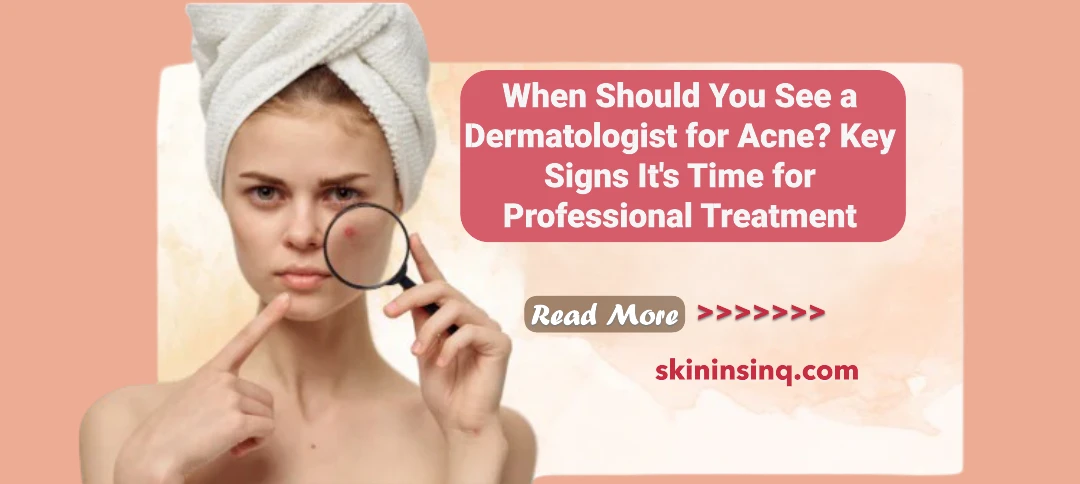When Should You See a Dermatologist for Acne? Key Signs It's Time for Professional Treatment
When Should You See a Dermatologist for Acne? Key Signs It's Time for Professional Treatment
Acne is a common skin condition that many people experience at some point in their lives. For some, it’s a temporary annoyance that responds well to over-the-counter products. For others, it can be a persistent, painful, and emotionally distressing issue. Understanding when to see a dermatologist is key to preventing long-term skin damage and improving your quality of life.
1. Persistent or Severe Acne
If your acne includes large, painful cysts or nodules that go deep into the skin, you should seek help from a dermatologist. These types of acne lesions can be difficult to treat on your own and may lead to scarring if not properly managed. A dermatologist can prescribe oral medications, stronger topical treatments, or even procedures like cortisone injections to quickly reduce inflammation.
2. No Improvement with Over-the-Counter Treatments
Over-the-counter acne treatments—such as those containing benzoyl peroxide, salicylic acid, or adapalene—are effective for mild to moderate acne. However, if you’ve been using these consistently for 8 to 12 weeks without improvement, it’s a sign you may need prescription-strength medication. Dermatologists can tailor a treatment plan specific to your skin type and acne severity.
3. Acne Scarring or Dark Spots
One of the biggest risks of untreated or improperly treated acne is permanent scarring or post-inflammatory hyperpigmentation (dark spots). If your acne is leaving marks behind, early intervention by a dermatologist can help minimize and prevent long-term damage. Treatments like chemical peels, microneedling, or laser therapy may also be discussed.
4. Emotional Distress
Acne can affect more than just your skin—it can impact your confidence, self-esteem, and mental health. If you find yourself feeling anxious, depressed, or avoiding social situations because of breakouts, it’s a valid reason to seek professional help. Dermatologists understand the emotional toll acne can take and can help you find effective solutions that offer visible and emotional relief.
5. Hormonal Acne
If your acne flares up around your menstrual cycle, shows up primarily along your jawline, or begins in adulthood, it could be hormonal. In such cases, topical treatments alone may not be enough. Dermatologists can prescribe hormonal treatments such as oral contraceptives or spironolactone to help balance hormone levels and reduce breakouts.
6. You Suspect an Underlying Condition
Persistent or unusual acne might sometimes be linked to underlying health issues, such as polycystic ovary syndrome (PCOS). A dermatologist can help determine if there are other medical factors involved and refer you to a specialist if needed.
Conclusion
You don’t have to struggle with acne alone. If your breakouts are painful, persistent, scarring, or emotionally upsetting, seeing a dermatologist can make a significant difference. Early treatment can prevent permanent skin damage, restore your skin’s health, and improve your overall well-being.

Related Blog
Can People with Dry Skin Also Have Acne? Understanding Breakouts Beyond Oily Skin Types
Aug 2, 2025 by Admin
General Acne
What Causes Oily Skin and Can It Be Managed Naturally? Exploring Root Causes and Gentle Solutions
Aug 2, 2025 by Admin
General
Does Popping Pimples Always Make Acne Worse? The Risks and Realities of Squeezing Breakouts
Aug 2, 2025 by Admin
General Acne
Do Oily Foods Make Pimples Worse? Uncovering the Truth Behind Diet and Breakouts
Aug 2, 2025 by Admin
General Acne